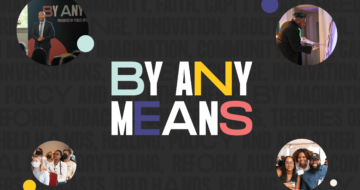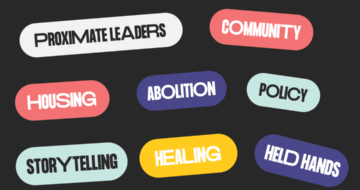Early in 2019, Public Welfare Foundation announced that we were focusing our efforts to help catalyze a transformative approach to youth and adult criminal justice that is community-led, restorative, and racially just. Our belief that the best ideas bubble up from communities compelled us to develop a framework that prioritizes betting big on emerging leaders, local organizations, and innovative solutions. It compelled us to focus on getting resources to the ground.
The world has changed dramatically since we made that announcement, yet we have never been more acutely aware of how significant the needs are locally than at this moment. Driving resources to the areas of greatest need and ensuring we invest in community-led transformative justice solutions is more important than ever.
Over the past 18 months, our team has been meeting with a broad range of stakeholders and doing lots of listening to help us identify jurisdictions where Public Welfare Foundation will operationalize our funding in this new season. At the same time, we have been working with leaders in our hometown of Washington, D.C. to develop and implement a local investment strategy.
We are pleased to announce that we will be partnering with the following state and local jurisdictions to help build ecosystems of reform and support great work that is already underway:
MIDWEST |
SOUTH |
WEST |
|
|
|
The Foundation already has a presence in some of these jurisdictions, such as Colorado and Michigan. Other jurisdictions, such as Oklahoma and Milwaukee, Wisc., represent new partnerships.
We believe these jurisdictions are working towards a transformative vision of justice and have promising community-based work underway, strong pipelines of emerging leaders, the potential for systems change, and partnerships that are ripe for collaboration. In each of these places, there are partners on the ground driving change despite inadequate funding and significant opposition. They have preceded our presence in these jurisdictions and are committed to ensuring justice becomes a reality in the places where they live and work.
As we continue to operationalize our framework and learn from our partners, we will also assess our capacity to add additional jurisdictions or address emerging issues that arise in the fields of youth and adult criminal justice.



